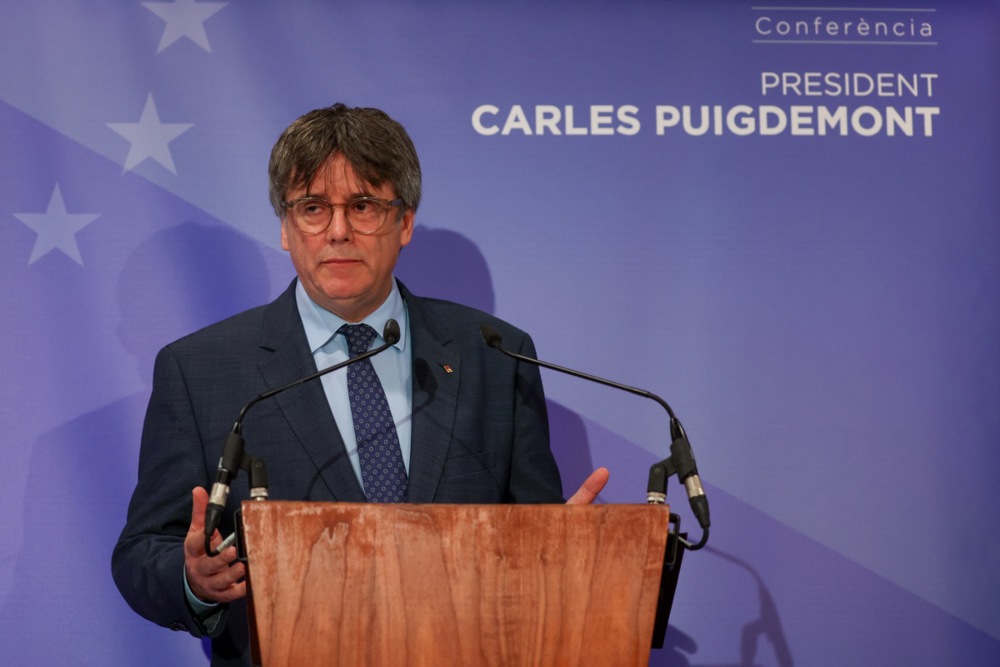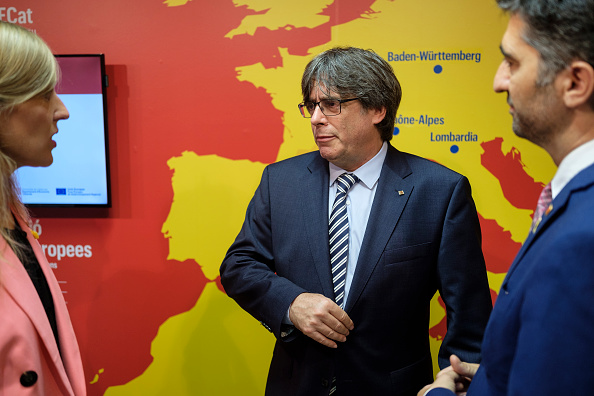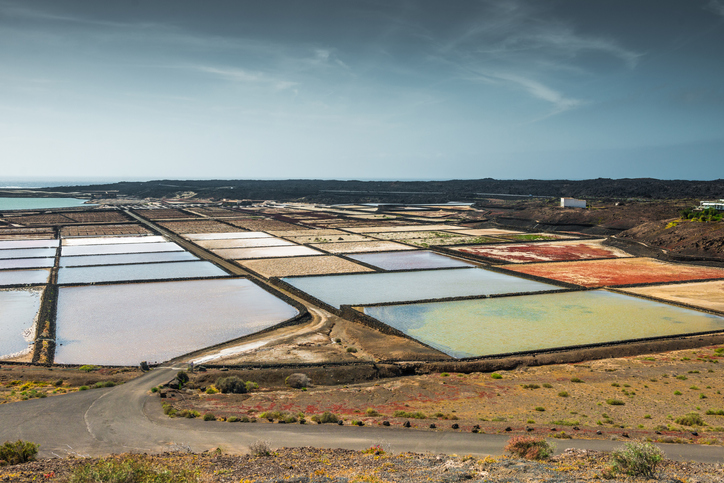Exiled Spanish MEP Carles Puigdemont may be closer to getting his way regarding a new amnesty law.
On September 19, the Catalan Left signalled that acting Prime Minister Pedro Sánchez’s Spanish Government might be ready to grant amnesty to the convicted separatist and others.
Oriol Junqueras, the president of the Esquerra Republicana (ERC) party, said the ruling PSOE had already committed to pass legislation that would make the amnesty possible.
According to Junqueras, the PSOE made that pledge in exchange for its support in the election for the presidency of the Spanish Congress.
“We made the PSOE commit to end repression with all legal means possible,” Junqueras told media in front of the Spanish Parliament on September 19. “Without a doubt, that includes the amnesty.”
He added that the legislation must include “everyone who has been unjustly persecuted for crimes not codified in law”.
Despite the unclear constitutional status of the amnesty, Junqueras insisted that “the government has enough mechanisms and tools” to push forward with implementing the ruling.
Sánchez pardoned Junqueras in 2021 for his involvement in the Catalan separatist events of 2017.
In addition, Sánchez has reportedly made an offer to Puigdemont already. According to analysts, the PSOE would be willing to grant amnesty to the convicted separatists.
Its only condition is that Puigdemont’s Junts per Catalunya party does not demand a self-determination referendum. That likely would allow the PSOE to “sell” the proposal to the Spanish public, despite the opposition inside and outside the party.
Puigdemont and Junqueras argue that their 2017 Declaration of Independence and referendum did not violate the law.
Junqueras added that he “will not repent for something that was not a crime”.
“To vote is not a crime.”
In addition to the amnesty, the separatist parties demand that the government “forgoes the use of the justice system” against them.
The progressive Sumar party of acting Deputy Prime Minister Yolanda Díaz has been negotiating with Puigdemont to look for this “political” alternative.
Díaz and Puigdemont met in the European Parliament headquarters on September 5, one day before the Waterloo-based fugitive announced his conditions to support a potential Sánchez bid for premiership re-election.
Díaz said recently that any “amnesty can only come from a historic agreement”.
On the other side of the spectrum, Alberto Núñez Feijóo – nominated by the Spanish King as the official candidate for premier as the leader of the largest single party – said: “Sánchez does not have the people’s consent to promise an amnesty or a referendum.”
Other leaders from the centre-right Partido Popular (PP) echoed Feijóo’s statement. The highly popular president of the Madrid region Isabel Díaz Ayuso said that “Puigdemont has brought Sánchez to his knees”.
Both the PP and Catalan civil society organisations are organising major gatherings in Madrid and Barcelona to protest against the possible amnesty.





